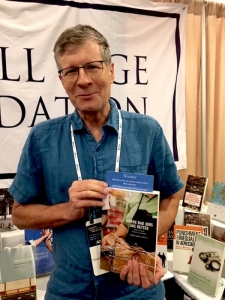Tilly Explains Business Model Behind Prop. 22
Urban Planning Professor Chris Tilly was featured on KCRW’s Greater L.A. discussing the pros and cons of Proposition 22 on the November ballot. If passed, Proposition 22 would reclassify app-based drivers with companies such as Uber, Lyft, Postmates and Doordash as independent contractors. This would exempt them from Assembly Bill 5, which classifies many gig economy workers as employees entitled to pay and benefits required by law. Tilly said these app-based companies rely on independent contracts to sustain their business model. “Their main cost is paying drivers. So it’s been a competitive strategy to draw in the drivers. … They can always offer them a particular price — take it or leave it,” he said. The app-based companies have spent millions on pro-Proposition 22 campaigning, and some have threatened to shut down service in California if it doesn’t pass. Opponents argue that the hidden costs of app-based driving, such as vehicle upkeep and waiting times between rides, will hurt drivers and decrease their profits.

